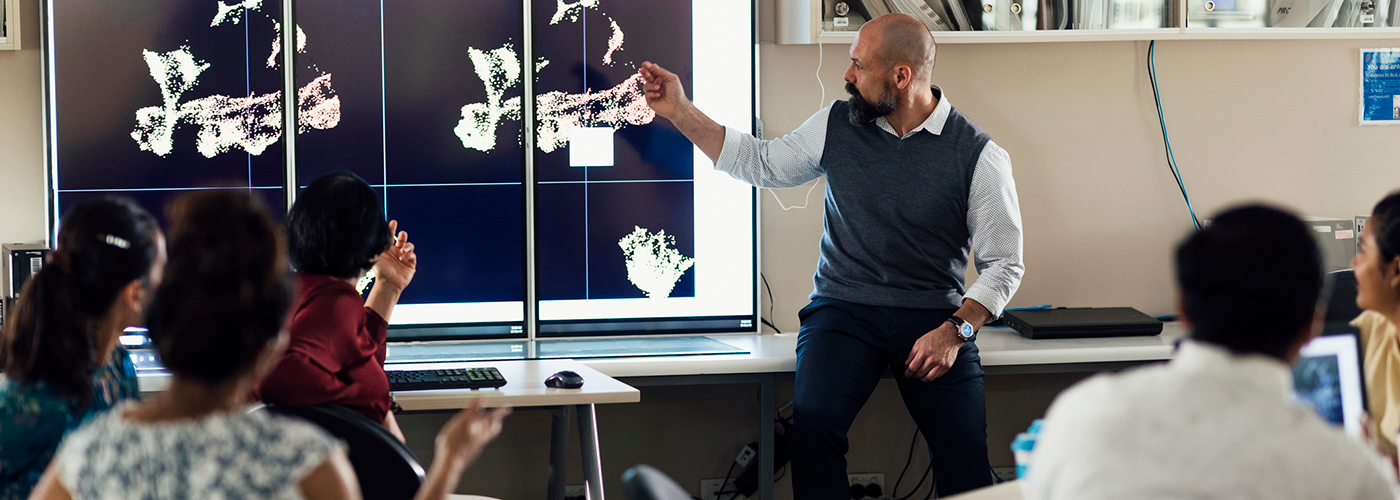"...Simply put, customized training provides ready-to-work individuals with
the skills they need to secure good jobs that are ready to be filled."
- The Biden Report (Ready to Work: Job Driven Training and American Opportunity, July 2014)
A Customized Training Toolkit is available from ExploreVR. It provides information and resources on:
- Emerging customized training models based on employer partnerships with VR agencies
- Promising practices from customized training programs that involve partnerships with community colleges and programs, based on industry-specific or sector-based training models where VR is a key partner
- Resources for developing customized training programs in VR
- Customized training research and best practices
Partnerships that Match Employer and Job-Seeker Needs
Customized training programs are partnerships between employers and local training providers, such as community colleges or community-based organizations. The programs provide training to job seekers that match the skill needs of employers. The partnership typically includes a commitment from the employer to share costs with the training provider and to hire some or all of the successful graduates of the training program.
The partnerships can also include organizations like vocational rehabilitation agencies and American Job Centers. These additional partners perform critical tasks like managing and convening the partnership, doing recruitment, performing assessment and intake, and providing linkages to supportive services. (1)
Benefits of Customized Training in Vocational Rehabilitation
There are many benefits of using customized training programs to improve vocational rehabilitation outcomes. Customized training programs:
- lead to improvements in the number and quality of employment outcomes for VR clients and opens doors for people with disabilities to high-quality, well-paying jobs.
- can inform VR staff and clients about up-to-date employment opportunities.
- offer direct connection to jobs: participants become part of a pool of qualified candidates, often paid while training.
- lead to credentialing of candidates, which is valued by businesses.
- offer strategies to get beyond entry-level work by focusing on training for jobs requiring "middle skills," and opens multiple career pathways.
- align with federal focus, which brings attention, resources, and funding.
- create a "win-win-win" collaboration with benefits to business, VR, and clients.
- offers an efficient way to allocate limited resources. The costs can be reimbursed, shared, or distributed across partners, depending on the CT model.
- enhances VR's visibility with businesses as a valuable disability expert, consultant, and supplier of qualified talent pools.
Engaging Business in VR-Community College Training Partnerships
VR and community colleges can partner to engage business together. Establishing a business relationship is typically the first step in a customized training business partnership.VR and community colleges engage business using a variety of methods, including:
- Establishing business advisory boards for specific industries to learn about business needs
- Meeting one-on-one at the business with employers to explain VR and community college services and training programs
- Attending Chamber of Commerce meetings and workforce development board meetings
- Inviting employers and community colleges to present to VR consumers about job and training opportunities
- Partnering with other workforce agencies to promote a common marketing message to employers
More about VR and Community Colleges Customized Training Partnerships Brief (pdf).
In our current economic climate, customized training programs can become a major gateway for people with disabilities to obtain and retain high-quality, well-paid jobs in their communities.
Access ExploreVR’s Customized Training Toolkit
(1) Long, David A. (2009). "The Promise of Customized Training: Evidence from the United States."

